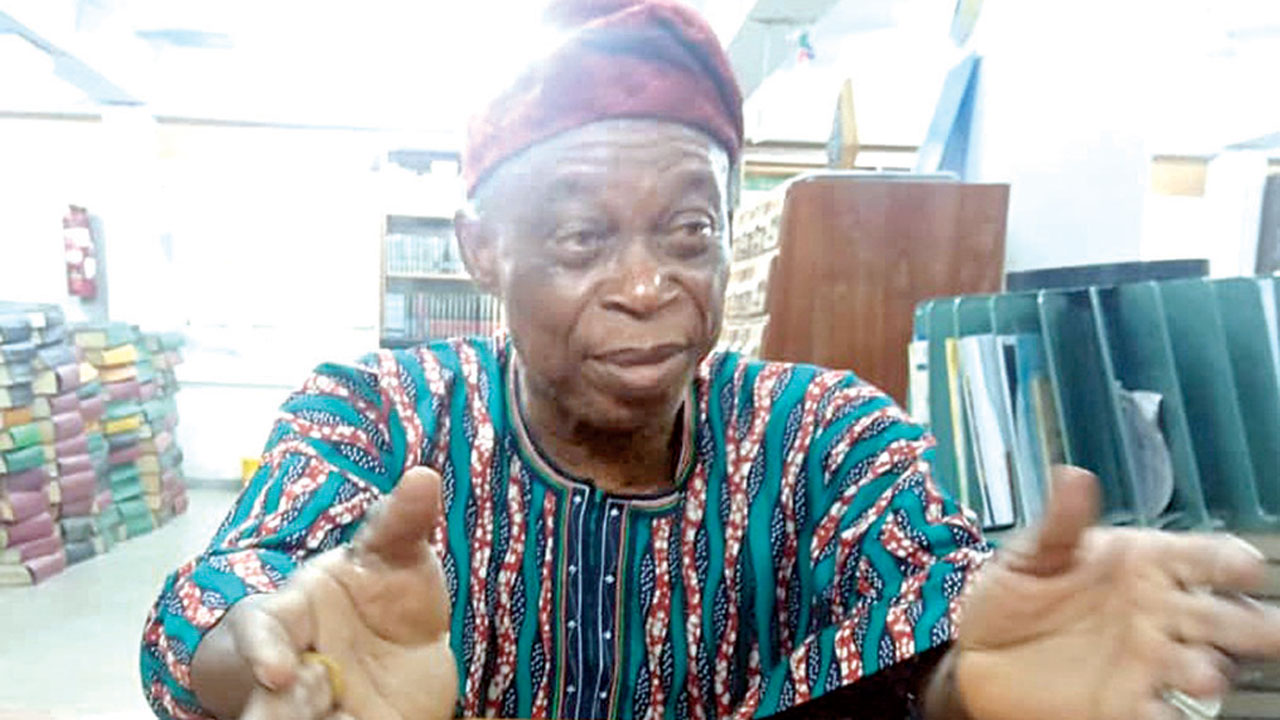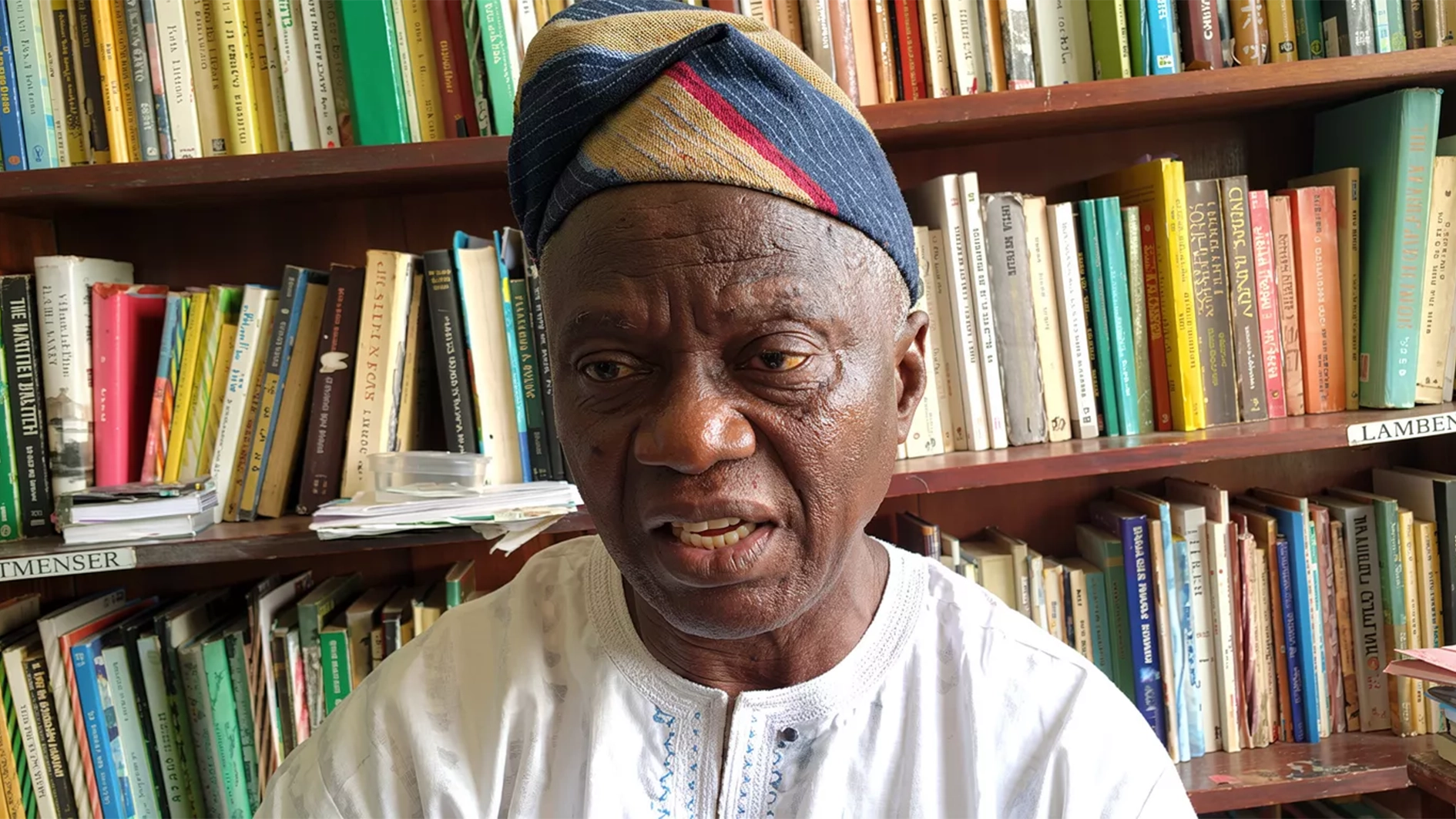
Aramide Tola-Noibi is a Fellow of the Nigerian Institute of Public Relations (NIPR). A former Chief Press Secretary to one-time Minister of Information and Sports, late Chief Alex Akinyele, he’s the immediate past conference Public Relations Officer of the Methodist Church, Nigeria. He spoke to DANIEL ANAZIA on range of issues with focus on public relations practice in Nigeria and its challenges.
Public relations practice in Nigeria seems to have become an all comers’ affair. What in your opinion has changed from the industry that you actively pioneered?
I feel extremely disappointed that the tempo has gone down drastically unlike when we started the aggression to put Nigeria on the global map of public relations excellence. Though it has not died, I want to believe that there’s need for some aggressive popping.
As a fellow of the Nigerian Institute of Public Relations (NIPR) and one of the pioneer reporters of Punch Newspapers, I ventured into public relations in 1975, starting out with Subaru Cars Marketing and Distribution under the auspices of L.B Trading Nigeria Limited, a family business owned by the Lababedis, who had been in Nigeria for over 50 years.
It was the one-time Minister of Information and Sports, late Chief Alex Akinyele that introduced me into the field of public relations at the residence of a cousin, late Chief Oladipupo Kuye, who was then Comptroller of Customs, where I had to deliver some Subaru cars.
At the time, Chief Akinyele was the spokesperson of the Customs and by extension in-charge of public relations.
The mechanism of public relations practice in the county at time was obsolete. With the support of some colleagues, we upturned the obsolete mechanism. As a caucus, we were able to dismantle the then executive of Lagos State chapter and planted our own executive that we felt could move the institute and its ideals forward.
We were meeting then at the Island Club in Lagos Island, but when Chief Akinyele saw how serious we were, he suggested that we should be meeting at his residence. He had only one person to contest with for the post of president of the national association, and that was Mazi Mike Okereke, who was then the overall public relations adviser of UAC. Chief Akiyele emerged winner by 72-48 votes. That marked the beginning of the energetic and robotic pursuit of the practice of public relations in Nigeria.
It was at this time that I became the National Public Relations Officer of the Institute. This was precisely October 31, 1985, and it was through my cousin, Chief Duro Onabule, who then was Chief Press Secretary to the then Military Head of State, General Ibrahim Badamasi Babangida (IBB).
The Institute was the first professional body that paid Gen. IBB a courtesy visit. The essence of the visit was to reactivate the working mechanism of public relations practice in Nigeria. So, it was no longer for any Dick, Tom and Harry to ascribe himself as a public relations practitioner or officer, except you are authentically registered and approved by the Nigeria Institute of Public Relations (NIPR). There and then, the journey started to move round the ministries, agencies and parastatals that needed and support our call.
The milestone development started from Col Asi Ukpong, who was then the Commissioner (now Minister) for Information and Culture as the office was known then. He immensely assisted the institute that in 1990, Chief Akinyele was appointed Minister of Information, and the then military regime, on August 16, 1990, promulgated the practice of public relations in the country. So, it was after this period that the practice of public relations in the Nigeria gained momentum till date.
One of the mechanisms we put in place at the time was a surveillance monitoring team that monitored the practice of public relations both in the government and the private sectors. With brilliant ideas, the institute became the mega phone of the government in power at the time.
As a result of the executives (a 27-man team, which comprised of the state chapter chairpersons) resilience, Gen Babangida know and addressed everyone of us by our first names. Like Chief Alex Akinyele, he calls him Aleco, and myself Tola. Let me say that Gen. Babangida is Nigeria’s best president except for the annulment of June 12, 1993 elections. People should not misunderstand me; I’m not an apologist to his administration.
Nigeria is a chosen country by God just like Israel. Whatever challenge we are facing as a country currently will be a thing of the past (in Jesus name). However, we have to watch it. As humans, we need and must be upright in whatever we do. Unfortunately, most Nigerians believe and live in deceits. As a people and nation, we must not be distant from God; we must hold him firmly in believe and in faith.
When Chief Akinyele appointed me as Chief Press Secretary on January 23, 1991, and I tendered my resignation letter to L.B Trading Nigeria Limited, they refused to accept the letter and said I was on leave of absence. What it means is that I still have my job anytime I choose to come back. In their words, ‘No, no, no, you don’t need to resign; we believe your are on sabbatical. We still need your services.’
My first assignment after the appointment was the Organisation of Africa Unity (O.A.U) Heads of States, which held at the Sheraton Hotel and Towers, Abuja. The event was a huge success, and that was the first time I came face-to-face and had a handshake with the then Ghana leader, Lt. J.J Rawlings. He missed his way to the Banquet Hall, which I was coming from. Despite the clout he commanded at the time, he portrayed humility and cheerfulness. I wish I had a photographer nearby that would have help capture the moment. That was how I became the darling of the Babangida regime.
I had a team at the time and we were sincere to ourselves. Today, most members of that team are giants in their own rights in the media industry, both in the print and the electronic media houses across the country, and I’m enjoying their supports now even as I’m in private practice as a PR practitioner.
Do you think the industry still very aggressive and effective like in the olden days?
The challenge or bottom line issue is that the state of the economy has affected the tempo and practice of public relations in the country. But that does not mean that the practice has gone down the drain. I want to use this medium to appeal to the government at the three levels —the federal, state and local government— to set up formidable Public Relations Commission that will embrace all government activities. As matter of fact, the responsibility is more on the Federal Government, because if it is a national commission, all other tiers of government will embrace it, as there will be a law guiding its establishment. It will provide a synergy between the government and the people.
As you know, the people constitute the largest investment of the government, and government must try as much as possible to bridge that wide gap between them and the governed. Most Nigerians no longer trust the government, the functionaries, because our leaders are seen as liars, who don’t take into account the interest of the masses into consideration.
As a government, before you make any law or policy, you must first sample the opinion of the people that the law or policy is being made for. This is what is obtained in developed climes where we take cues of some of our policies; that is what I call public relations. When you sample the peoples’ opinion and elicit their reaction, you then go into the laboratory of thoughts to sieve the opinions to be able to come up with the actual policy intended. Anything short than this will result in making the government unpopular.
The distinguished economist, Prof Pat Utomi, at a seminar in Jos once said, ‘Public relations is like a lubricant of the engine of life.’ He also described it as a pendulum that must swing left, right and centre without any encumbrance or stoppage, and must have a lot of tentacles. He noted that life itself is a race that has tentacles that is subdivided into four phenomenon; Research, Action, Communication and Evaluation.
Like I said earlier, public relations connote positivism, negativism and neutrality, but the most important is neutrality. And like I canvassed earlier, Nigeria needs effective, aggressive National Public Relations Commission, which should be grass rooted due to the stratification of the society.
It so unfortunate that Nigerians are suffering despite the enormous and unimaginable national wealth that the God has endowed us with. It is so disheartening that an average Nigerian cannot afford a single meal a day needless say tree square meal. Take a look at the prices of petroleum products despite the fact that we are an oil-producing nation; our refineries are moribund. So, government must try as much as possible to put the welfare of the masses (people) top on list of its priorities.
We came to life with nothing and we must surely leave with nothing. Why the quest for unwanted wealth at the detriment of other innocent citizens? We must do things within the purview of the fear of God, who is the creator of everything including the heavens and the earth. It is very unfortunate that our leaders are irresponsibly amassing unwanted wealth.
As PR practitioners, we must showcase the beauty of public relations by educating the government and the governed. It may interest you to know that Jesus Christ was first person to practice public relations in the Bible by choosing his disciples from the different tribes of Israel, and at the end of the day, his messages went down deep to the people to the extent that in Antioch, people saw the disciples with their Christ-like behaviour they called them Christians.
We must do thing inline with the fear of God. And like I stated before, PR entails Research, Action, Communication and Evaluation (RACE). When you make research on what is to be done and come up with a possible action plan, the next thing is communication, which involves public relations. The evaluation process will help ascertain if the research, action plan and communication were good, as the result could be positive or negative (success or failure).
I want to appeal to Nigerians to give public relations that respect that it deserves and not see Press Secretary or Public Relations Officer (PRO) as a glorified messenger, while Press Secretary or PRO on the other hand should not be running after money at the expense of the reality on ground.






